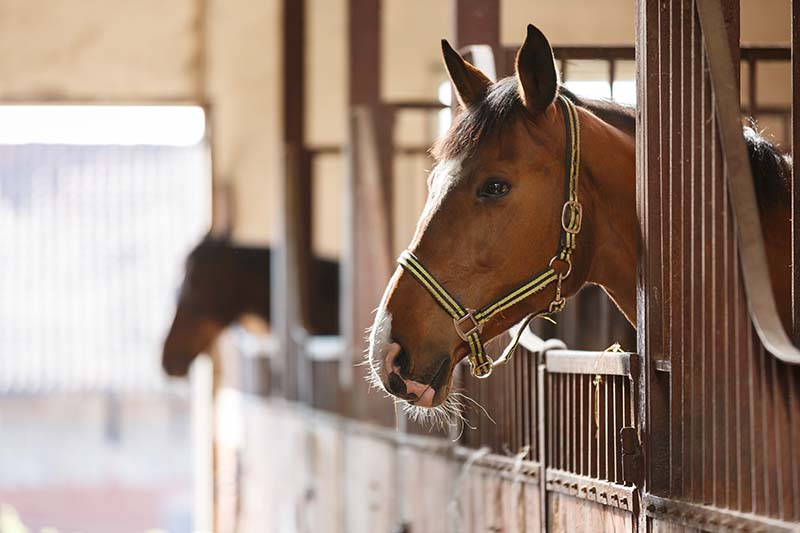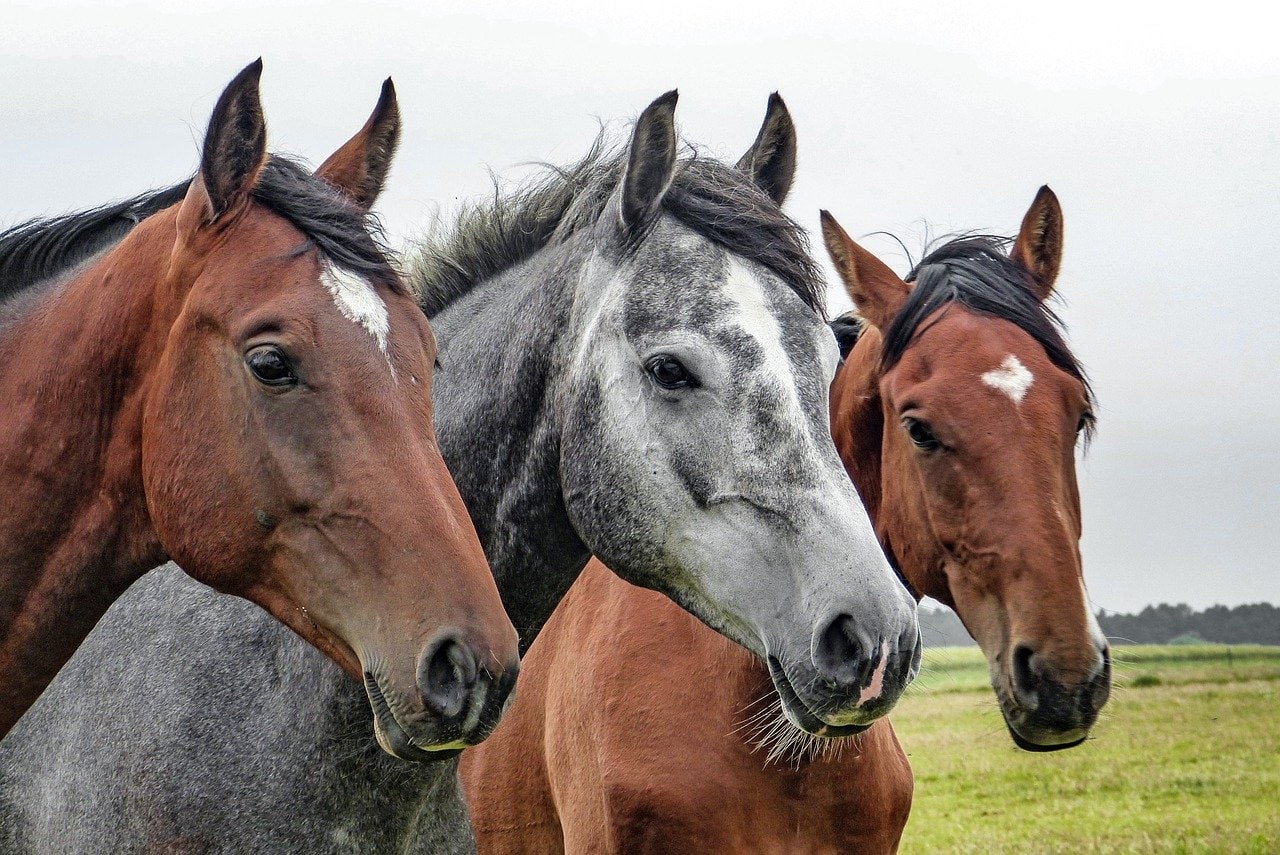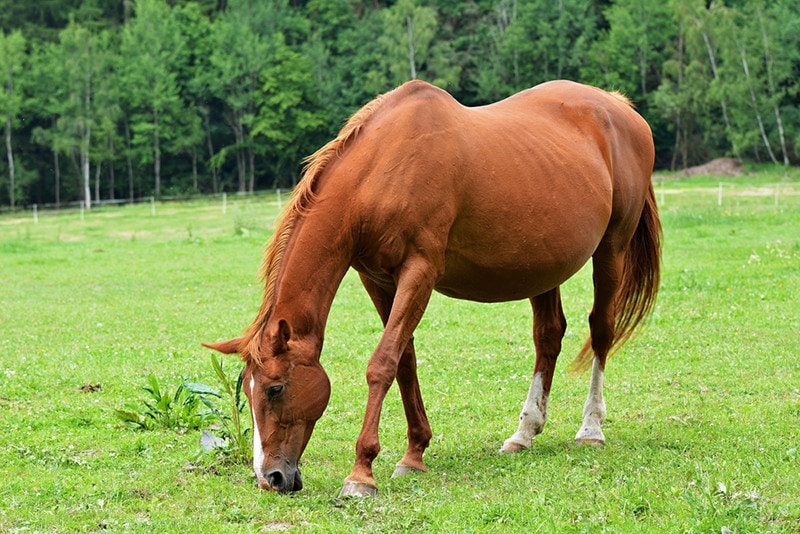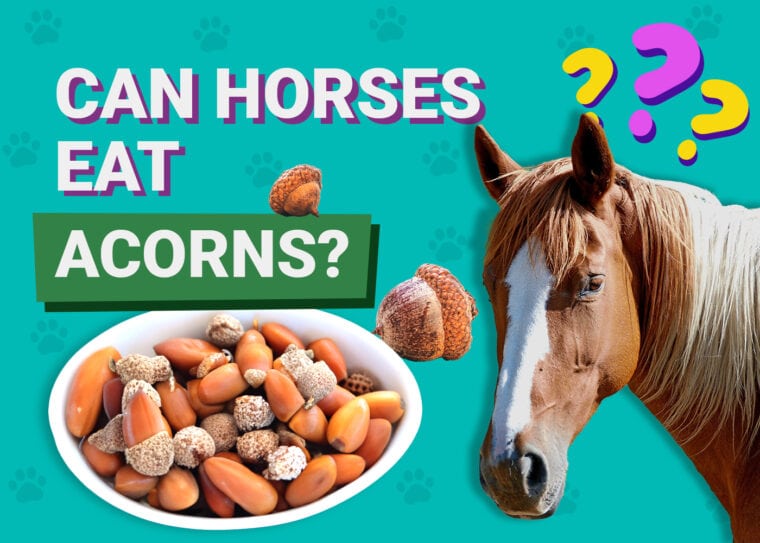
Click to Skip Ahead
Oak trees are a global staple, but they are especially common and revered in North America. Oak trees are everywhere, and you might not even realize it at first glance. Oaks have the bad habit of dropping leaves and acorns wherever they grow. This, in turn, can lead to some horses eating acorns and oak leaves. But is it safe for horses to eat acorns? The answer to that question is no. Horses shouldn’t eat acorns because they are dangerous for them. Here is everything you need to know.
Can Horses Eat Acorns?
Horses should not eat acorns. Acorns and oak leaves are toxic to horses due to chemicals called tannins found in them and have numerous potential dangers that can negatively affect horses. Green acorns and young leaf shoots have the highest concentration of tannins, and horses need to consume large quantities to be affected.
While it will take a lot of acorns to cause oak toxicity in a horse, you should still prevent your horse from eating acorns whenever possible. In addition to being potentially toxic, acorns can also pose a problem for horses’ teeth. Acorns are hard, and horses are more designed to eat grass and other forages, not hard things like acorn shells.
Between the toxicity and the damage that acorns can cause to teeth, horses should avoid eating acorns at all costs.

Do Horses Like Eating Acorns?
Luckily, most horses do not like eating acorns. Most of the time, a horse will only eat an acorn by accident while they are grazing. Acorns can fall into the grass and get mixed up and hidden from sight. While horses are grazing, they can accidentally pick up an acorn. One or two acorns shouldn’t harm a horse, but it is something to keep an eye on. Sometimes, horses will also eat acorns if they are bored or if they are starving. But generally, horses will not choose to eat acorns on their own. That reduces the risk that horses will eat enough acorns to feel negative side effects.
Different Kinds of Acorns
Since there are different species of oaks, there are also different kinds of acorns. Acorns can fall from nearly any oak tree. Types of oaks include red oaks, white oaks, and black oaks, which make acorns that are spherical or oblong in shape. Some oaks and acorns are more toxic to horses than others.
Red oaks and black oaks are considered to be the most toxic type of oak to horses. That means that the acorns and leaves from these trees are more dangerous than acorns from other types of oak trees. If you have oak trees in or near your pasture, you should try and figure out which type of oak they are so you can monitor your horse for potential signs of toxicity.

Can Horses Eat Oak Leaves?
Oak leaves have the potential to be just as toxic as acorns. Young or immature leaves are the most toxic. Unfortunately, some horses actually like eating oak leaves, unlike acorns. Do not let your horse eat acorns or oak leaves at any point if you can help it.
Oak Toxicity
Oak toxicity can be fatal in horses if not treated, and requires that horses eat oak leaves or acorns regularly over a period of time. It more rarely occurs when a horse eats too many acorns in a short amount of time. Again, green leaves from the early part of the season (usually spring) and green, unripe acorns have higher concentrations of toxins in them than mature or dead oak leaves or acorns. Signs of Oak Poisoning
If you suspect that your horse has eaten a large number of oak leaves or acorns, they could start to suffer from oak poisoning. Oak poisoning can be dangerous or potentially fatal.
If you see any of these signs in your horse, you should call your veterinarian right away and get them checked out. Colic is an extremely dangerous condition that can lead to the death of a horse in a matter of hours if left untreated.
If your horse doesn’t colic from oak poisoning, they could still suffer kidney or liver damage. The toxins in the acorns and leaves can lead to a buildup of harmful chemicals and compounds in the horse’s blood, which will put strain on the liver and kidneys. Since the liver and kidneys filter the blood, they will be the organs that get the most damaged. This is also what can cause excessive urination in horses if they have oak poisoning.
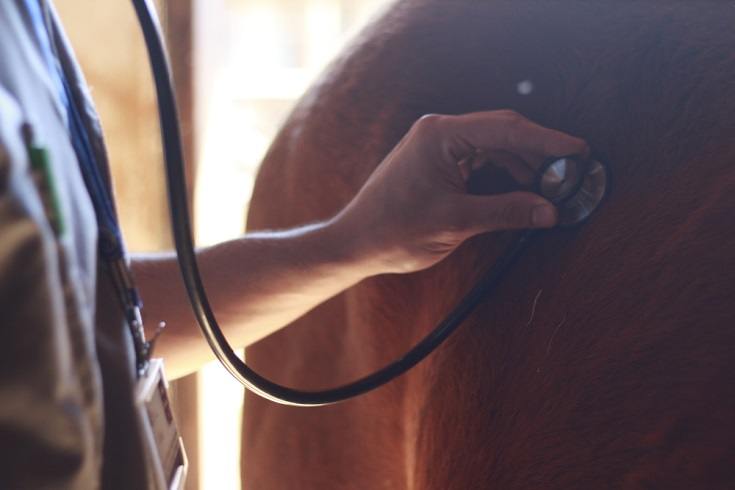
Treatment for Oak Poisoning
Treatment for oak poisoning includes fluid treatment and electrolyte therapy. Sometimes treatment can last for weeks. This means essentially flushing a horse’s system out until the poison is gone and the organs can start to heal. Not all horses will recover after treatment, and not all owners can afford extensive fluid treatment for days or weeks on end.
How to Prevent Horses from Eating Acorns
The easiest way to prevent your horse from eating acorns is to ensure that there are no acorns around for them to eat. This can require you to remove problem oak trees from the vicinity. You can also try to move horses into pastures away from the oak trees, thus removing your horses from the source of the acorns. You can also try to build a fence around the oak trees in a wide enough perimeter to leave most of the acorns out of reach of your horse.
If you cannot remove the oak trees that are plaguing your horse, there are other things you can try. Ensuring that your horse has plenty to eat will prevent them from eating most oak leaves, acorns, and other products. Horses generally do not want to eat oak, so giving them access to hay, grass, forage, and grain will keep their desire to munch on toxic oak to a minimum. Plenty of exercise and water will also help keep them from getting bored or distracted, which can also help lessen the odds that your horse will try to eat toxic oak.

Conclusion
Oaks can be highly toxic to horses. It takes a large number of acorns or leaves to harm a horse, but consistent eating or ingesting a large amount of acorns at once can make a horse ill. It can cause colic, which can be fatal. Acorns can also hurt a horse’s teeth. In all cases, you should avoid letting horses eat any acorns or oak leaves. Your horse will be much better for it if you can keep them away from acorns.
Related Reads:


